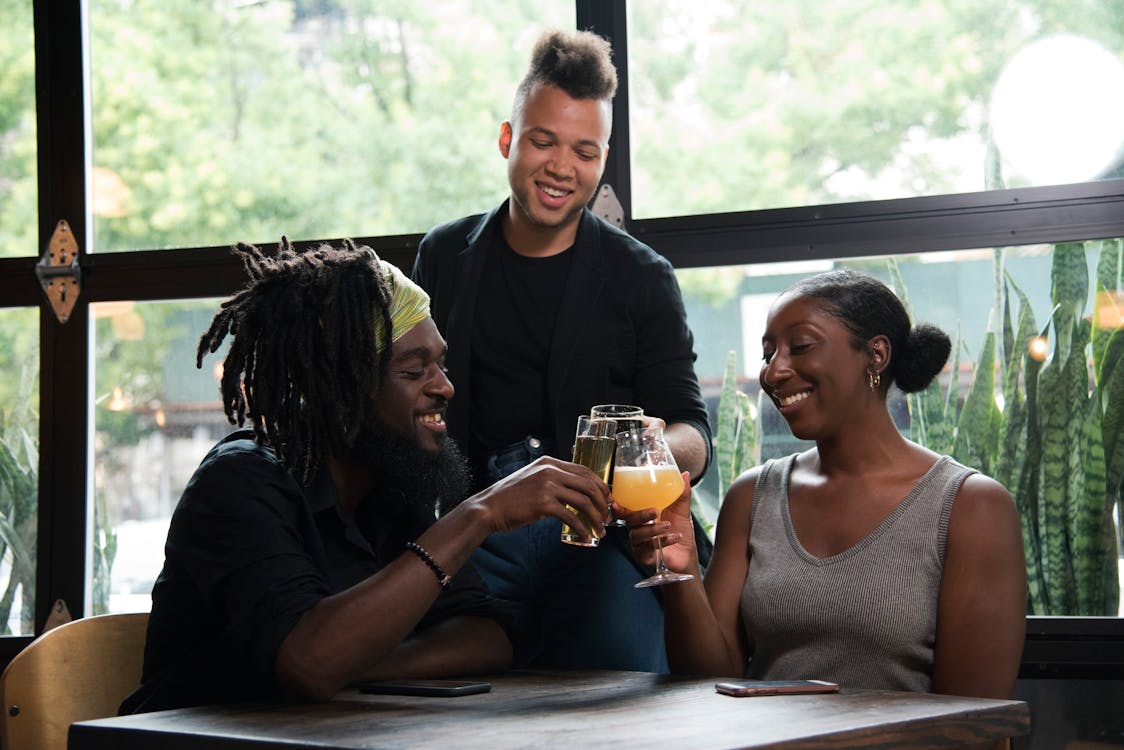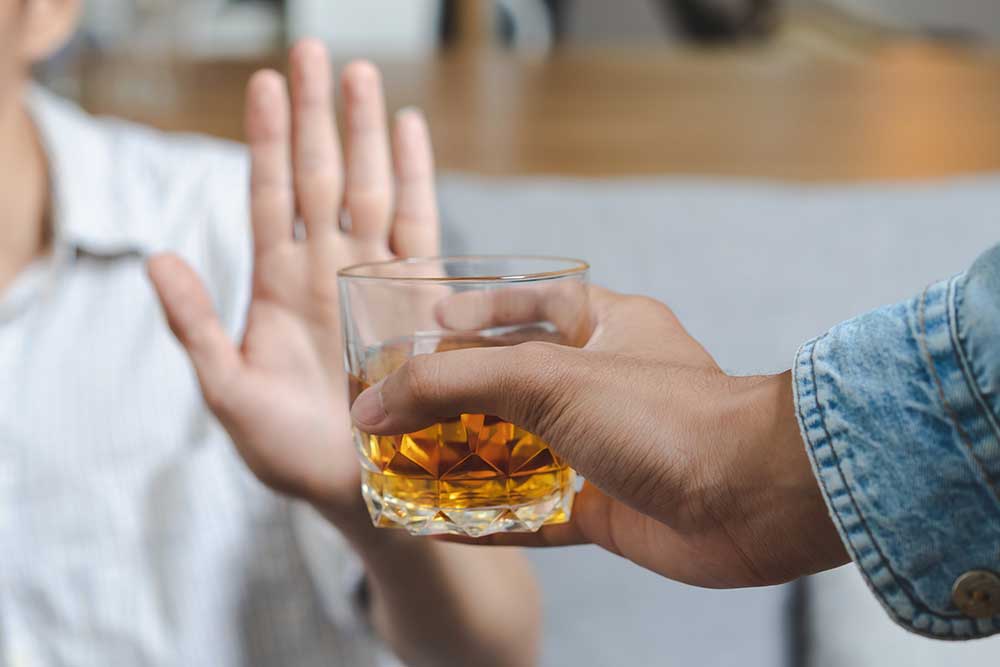Around 15 million Americans have an alcohol addiction,1 and drinking alcohol is often a common occurrence at social functions. Before you got sober, you may have joined your coworkers for a beer after work, enjoyed wine with your family dinners, or shared a case of beer with your friends while watching the weekend game.

These and other social events don’t disappear after you’re sober, so it’s wise to learn how to manage alcohol cravings when you’re at social events. The following eight tips can help you successfully cope with urges to drink and help you succeed in your recovery journey.
1. Avoid High-Risk Social Situations
As a recovering individual, you may need to stay away from alcohol and any situation that could increase your urge to drink. That means avoiding social situations that include alcohol. Decline invitations to events where alcohol is served or suggest alternative activities. Remember that avoidance may not last for the rest of your lifetime, but it is wise right now to steer clear of high-risk social situations as you establish your sobriety.
2. Have a Plan
Your ability to manage cravings starts well before your coworkers or friends ask you to meet them at the corner sports bar. You need a plan to cope with invitations to social events that will include drinking. Have an excuse to avoid the gathering or suggest an alternative nonalcoholic option. You can also ask a mentor or friend to check in a few times during the event because this accountability2 could help you resist the craving to drink.

3. Learn How to Say No
All your strategies to manage cravings are helpful, but be prepared to handle peer pressure with assertiveness.3 You will need to know how to say no to your family members, friends and others who offer you a beer, encourage you to drink, or otherwise pressure you to give in to a craving. To say no and show that you mean it, make eye contact, speak in a clear, firm voice, be prepared to change the conversation subject, and walk away from the person or event if necessary. Before your next social outing, practice saying no in a mirror and with a trusted mentor or sober friend. Good friends will respect your decision to stay sober. But your ability to say no is essential for your peace of mind.
4. Use a Distraction
Cravings for alcohol are generally temporary, but if you spend time thinking about it, you’re more likely to act on your urge. A distraction can help you avoid drinking. Create a list of distractions that work for you during social situations, such as stepping outside for fresh air, sipping ginger ale, or chewing gum. Before each social situation, think through the possible distractions you could use at this particular event, and be prepared to utilize a few options that help you manage cravings.
5. Carry a List of Reasons Not to Drink
Think about why you quit drinking, and you can probably come up with at least a few reasons. Maybe you got sober to improve your health,4 connect with family or keep your job. Write these meaningful reasons on a piece of paper, and carry the list in your pocket or wallet. Touch or read the list when you experience a craving during social events, and you can gain the courage to walk away from the drink.
6. Call Someone
A sobriety coach or a trusted family member or friend can be a resource that supports your ongoing sobriety. Identify a few safe, supportive people, and ask them if you can contact them when necessary. Then give yourself permission during social events to call someone on your safe contact list. In addition to offering a listening ear, the people on your call list can offer you a distraction until your craving passes.
7. Create a Different Normal
It may not be possible to enjoy your normal social events and stay sober, so make new normals. For example, catch up with coworkers during an afternoon coffee break or take a walk after work to relax. You could also ask your friends to choose a different activity for your weekend gatherings. A change in how you used to do things can help you say no to drinking and create a new nonalcoholic normal.
8. Expand your Social Circle
Celebrate and maintain your sobriety with new friends who are sober and supportive. Attend 12-Step recovery meetings, volunteer with a local charity or join a group dedicated to your favorite hobby. As you expand your social circle, you can stay busy and surround yourself with new sober friends. These two strategies help you manage cravings as you stay active socially and maintain your sober lifestyle goals.

Cravings for alcohol are normal and can happen at any time, including during social events. Manage your cravings with these eight tips and strategies. They allow you to enjoy social events and remain sober.
Sources:
1National Institute on Alcohol and Alcoholism. Alcohol Use Disorder.
2Centre for Clinical Interventions. Module 6: How to Say “No” Assertively.
3National Institute on Alcohol and Alcoholism. Alcohol’s Effects on the Body.
Author
-

President, CEO & Founder at Northbound Treatment Network
Paul Alexander is the CEO, President & Founder of Northbound Treatment Network in Newport Beach, California. He believes wholeheartedly in transformational leadership, organizational health and effective, fully integrated substance use disorder and mental health treatment. With over 27 years of experience in behavioral healthcare, Paul has extensive knowledge of “in vivo” treatment modalities, clinical development, operations, strategy, marketing and financial planning. He has been widely recognized for his development of collegiate-based residential treatment programs for students in recovery and authored a research study at The University of California confirming this modality’s effectiveness.
Paul’s comprehensive professional experience, willingness to innovate, and emphasis on organizational health are vital factors in Northbound’s continued success. Paul received his Certified Addiction Treatment Specialist training at Saddleback College in Mission Viejo, CA, and was awarded Outstanding Alumni Service Award in 2002. Paul holds a Bachelor of Arts degree in Criminology, Law and Society, Summa Cum Laude, from University of California, Irvine, and a Juris Doctorate degree from Loyola Law School of Los Angeles. Paul currently serves on The National Association of Addiction Treatment Providers (NAATP) board. In addition, he serves on The Family Recovery Foundation board and The CarePossible board in Orange County; both organizations are committed to raising funds for family recovery and treatment for former military personnel. Paul is in recovery himself and lives in Orange County with his wife Silvana and his two young sons, Noah and Dean.







